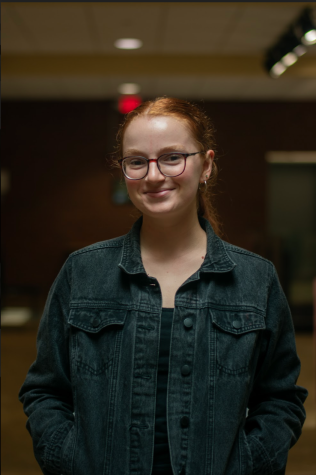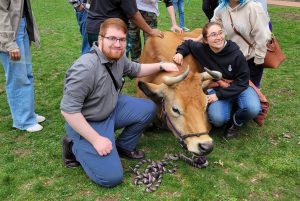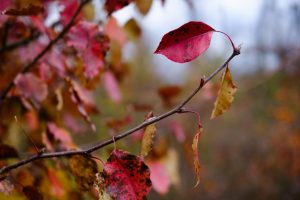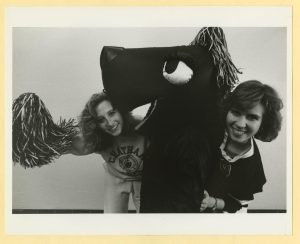On Writing: Chatham MFA creative writing faculty share insights into their process, work
November 16, 2020
What’s it like to be a writer? How does a writer take ideas and turn them into meaningful words on a page?
Three faculty members from Chatham University’s MFA in creative writing program spoke about their pieces and process during a virtual poetry reading on Monday, Oct. 26.
The featured faculty speakers were Sheila Squillante, Heather McNaugher and Leia Penina Wilson, who also answered questions during the hour-long event.
Squillante welcomed attendees and introduced McNaugher — the first faculty reader — as “a really difficult person to read after — you’ll see what I mean soon.”
McNaugher began on a humorous note.
“Thanks Sheila, I thought you were going to stop at, ‘She’s a really difficult person’– full stop!” she joked.
Her first poem, “Binghamton 2002,” was a snapshot of McNaugher’s time at the University. The poem didn’t peer into a time spent studying or being in class, but instead, it reflected a warm moment sitting on the edge of a bed, eating “the ushe:” spaghetti with meat-flavored Price Chopper sauce.
The poem ended by quoting an apparently over-played TV commercial: “DO YOU HAVE A WOUND THAT WON’T HEAL?” We heard the intrusive announcer voice bounce through the virtual room.
McNaugher went on to read “The Sweatshirt,” detailing the feeling of seeing an ex’s new girlfriend wearing an old, memorable article of clothing the speaker once wore.
In “The Country Reopens,” a connection made upon the transition out of quarantine, one particular line struck a chord. “I need a single unmasked face pouring into me, gallon after gallon of nodding and howling.”
“You feel me? You feel me,” McNaugher said into the Zoom “void” before reading her final piece, “The Stacks.”
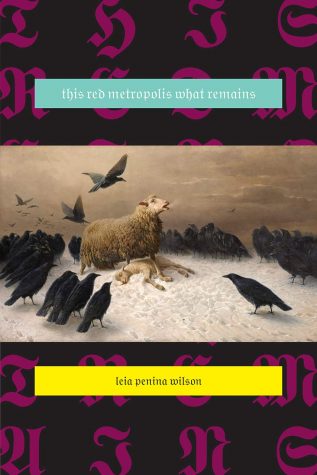
Introduced as “a maker,” Wilson followed McNaugher. She began with an excerpt from “This Red Metropolis What Remains,” part of her recently released book by the same title.
Wilson’s works tackled feminism, anti-colonialism, brutality, survival and memory. Her writing was darkly funny and ironic at times, with a consistently strong voice for both intra and extrapersonal interrogation.
“How many times must the world unfall? In the name of love, why even?” — a powerful question asked in “This Red Metropolis What Remains.”
Wilson also shared three newer poems during the event: “the argument OR to be continued,” “volta OR these snapdragon flower seed pods look like little skulls because it’s all imagination & horror baby” and “volta OR is there any surprise left.”
After Wilson, Squillante returned to share four poems from her newest collection. “Mostly Human” contained personal-moment and cultural-moment poems following the character Round Baby “who is mostly human most of the time,” Squillante said.
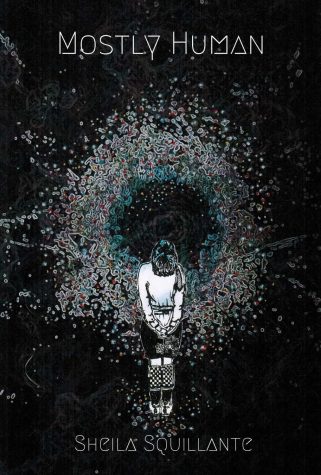
“Round Baby Rides the Landslide” placed the character in Washington with the eruption of Mount St. Helens, wondering what ash does to a body and watching what it does to a landscape.
“Round Baby, Dissolved Upon Lift-Off” had Round Baby witnessing the Space Shuttle Challenger disaster in 1986, thinking about “a realm beyond her own dull knowing” as the lives of seven astronaunts dissolved in front of her.
Round Baby assumed the role of a failed nuclear reactor in “Round Baby Pours Down as Black Rain,” a unique perspective on the Chernobyl disaster.
In “Round Baby Plunders the Orange Sky,” Squillante’s character scans the sky for Halley’s Comet, all the while thinking of growth. “[She’s] ready to be beautiful and brutal, humanity’s last line of defense,” said the speaker.
All three authors brought something valuable to the table in their readings, as each wrote about personal things in different ways. McNaugher addressed it directly through an owned perspective. Wilson entered an almost abstract consciousness in which the voices of pervasive themes echoed and conversed. Squillante created a flexible, communicable narrative.
At the end of the event, the faculty members took questions and offered constructive tips to students about the “crappy, grueling, unsexy work” of writing, as Wilson put it.
Wilson noted that writers consistently have to “show up” in an exhausting pattern of creation, revision and sometimes destruction. This art form requires unspoken discipline.
McNaugher admitted that her approach to poetry is more sporadic.
“It really is feast or famine for me,” she said.
However, her “binge-writing” style holds equal generative potential. Trust that if you show up to the paper or to the screen, even to get one phrase down, you will keep writing, she explained.
McNaugher believes losing yourself in the process of writing is the real miracle of this work, not creating a masterpiece.
Similarly, Squillante added that even though it is messy, hard and requires us to set aside our egos, writing can be playful. She urged the audience not to try for the universal.
“If you start chasing it down it just runs faster,” Squillante said.
To read more from the Chatham MFA Program, visit thefourthriver.com.
About the featured writers in this story
Heather McNaugher, Ph.D, is the author of “System of Hideouts” and “Second-order Desire” and two poetry chapbooks, “Panic & Joy” and “Double Life.” She teaches creative writing and literature at Chatham University, where she is the nonfiction editor of The Fourth River. She recently presented at MLA on hybridity between CNF and literary criticism and at the Barbara Pym Society.
Sheila Squillante is the author of two poetry collections, “Mostly Human” — which won the Wicked Woman Poetry Prize from BrickHouse Books — and “Beautiful Nerve,” as well as three chapbooks: “In This Dream of My Father” (Seven Kitchens Press), “Women Who Pawn Their Jewelry” (Finishing Line Press) and “A Woman Traces the Shoreline” (dancing girl press). She directs the MFA program in creative writing at Chatham University. She recently became an obsessive plant person and also has a deep, abiding love for creepy dolls.
Leia Penina Wilson, Ph.D, is proudly Samoan. She is the author of “i built a boat with all the towels in your closet (and will let you drown)” from Red Hen Press and “Splinters are Children of Wood” from Notre Dame Press. “This Red Metropolis What Remains” recently dropped from Omnidawn Press. When she’s not reading trashy paranormal romance novels or watching TV, she plays Magic the Gathering. She would like you to wear a mask when you must leave the house, wash your hands vigilantly and practice safe social distancing.


